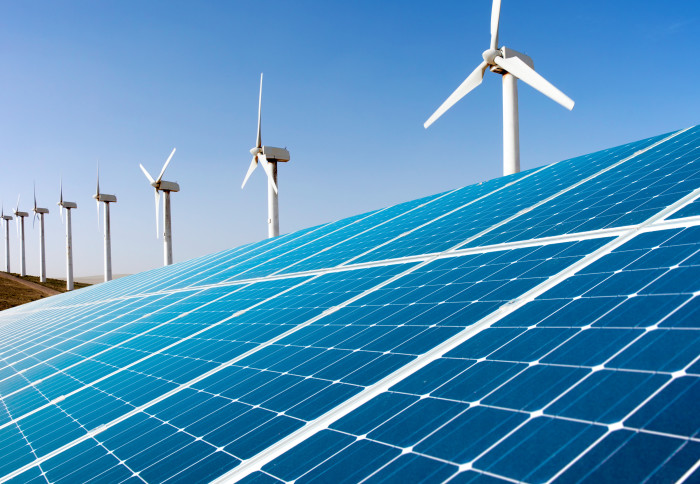Investors in renewables tripled fossil fuel performance over the past decade

Renewable power investors continue to outpace fossil fuel investors across the globe, signalling a decline for investment in fossil fuels.
This was the conclusion of a new report from the Centre for Climate Finance & Investment at Imperial College Business School.
The report, which is the second in a series of reports with the International Energy Agency, investigates the investment case for clean energy. It examines the performance of publicly traded renewable energy and fossil fuel companies in four categories: Global Markets, Advanced Economies, Emerging Markets & Developing Economies and China.
According to the analysis, renewable power generated significantly higher total returns over the last ten years. Annualised volatility was lower than fossil fuel portfolios in the Global and Advanced economies and higher than the fossil fuel portfolios in China and Emerging Markets & Developing Economies.
The findings show a superior risk/return profile for renewable power portfolios in both typical market conditions and during global economic imbalances. The report includes a new correlation analysis which shows that:
- The global renewable portfolio is less correlated to the broader market than the global fossil fuel portfolio
- Correlation fell during the recent downturn indicating the potential for diversification benefits
- Unprecedented economic volatility has led to deteriorating fundamentals within the energy sector as renewables portray greater resilience during the pandemic
"National regulators, particularly in the United States, must get to work on the reforms needed to level the playing field for clean energy investors." Dr Charles Donovan Executive Director of the Centre for Climate Finance & Investment
Dr Charles Donovan, Executive Director of the Centre for Climate Finance & Investment at Imperial College Business School, said: “Our research demonstrates that all over the world renewable power has outperformed fossil fuels. It's been the same story for more than a decade, yet total investment is still lagging. National regulators, particularly in the United States, must get to work on the reforms needed to level the playing field for clean energy investors."
Tim Gould, Head of Division for Energy Supply Outlooks and Investment, International Energy Agency, said: "This report points to clear financial benefits from investing in clean energy transitions, an important step towards mobilising higher levels of investment from the capital markets. But much more still needs to be done to link sources of sustainable finance with the areas of greatest need, especially in emerging markets and developing economies."
The report concludes that governments, companies and the financial community all have roles to play in setting conditions, developing projects, and providing the capital needed to address the investment challenge in clean energy. In recognition of these opportunities, the International Energy Agency (in collaboration with the World Economic Forum and the World Bank) will produce a special report in the coming months to provide recommendations on accelerating the financing of clean energy transitions in emerging markets and developing economies.
The report, Clean Energy Investing: Global Comparison of Investment Returns is available to download from the Centre for Climate Finance & Investment website.
The findings of the report will be the focus for an event hosted by the Centre for Climate Finance & Investment – "Energy Investing: Global Risk and Return Comparison" on 24 March.
Article text (excluding photos or graphics) © Imperial College London.
Photos and graphics subject to third party copyright used with permission or © Imperial College London.
Reporter
Laura Singleton
Communications Division